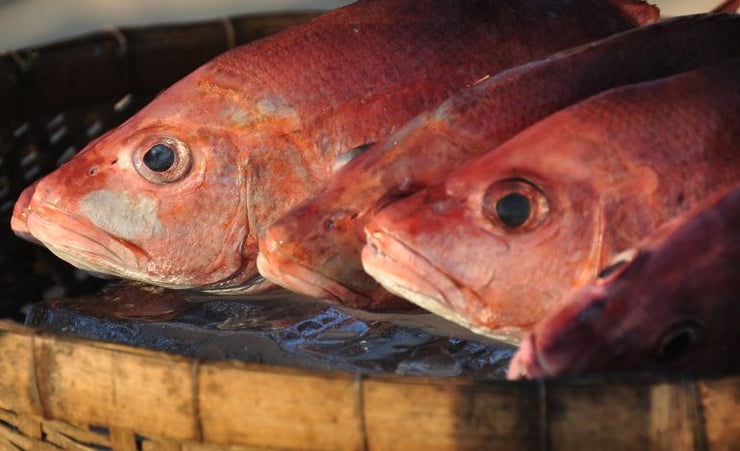'Don't Eat': Dead Fish Are Washing Up At Auckland Beaches

A multitude of snapper is adrift in the waters off Auckland, meeting a rather unfortunate fate as they wash ashore lifeless or in their final throes along the beaches of the Hauraki Gulf. Fisheries New Zealand has sounded the alarm, urging the public to refrain from consuming these fish "for safety reasons."
The unsettling discovery unfolded on February 23 when local anglers stumbled upon the deceased fish and promptly alerted the Ministry for Primary Industries. Andrew Barker, an eyewitness to the phenomenon who captured it on video, expressed his astonishment, remarking, "I've never seen anything like it before. Big fish too."
Barker shared the footage on a fishing group via social media, sparking calls to impose a ban on commercial fishing in the region. Concerns were voiced over the apparent wastage of these substantial specimens, with some speculating they were purposefully "dumped."
Matt Fairbrother, another resident angler, lamented that this occurrence was becoming distressingly routine. "I saw heaps in the water at the beach. It's not the first time it's happened. I fish the gulf regularly and live in the area. It's a lot worse than people know about," he shared.
The problem extended to Tawharanui beach, where Fairbrother reported over 200 dead fish, despite the area being a marine reserve.
Andre Espinoza, acting director of compliance at Fisheries New Zealand, issued a cautionary statement, urging the public to report any suspicious activity and emphasizing the importance of refraining from consuming the affected seafood for food safety reasons. He disclosed ongoing inquiries into reports of a significant number of dead snapper in the Northern Hauraki Gulf off Omaha Beach, Auckland.
While the cause remains unknown, Espinoza revealed that samples of the deceased fish have been collected, all of which were legal-sized, undamaged, and appeared to be in good condition. Utilizing real-time tracking of commercial fishing vessels, Fisheries New Zealand identified two vessels operating in the area, and investigations are underway.
Espinoza emphasized the need for public cooperation in reporting any dubious fishing activities, encouraging individuals with information to contact the authorities at 0800 4 POACHER (0800 47 62 24).





